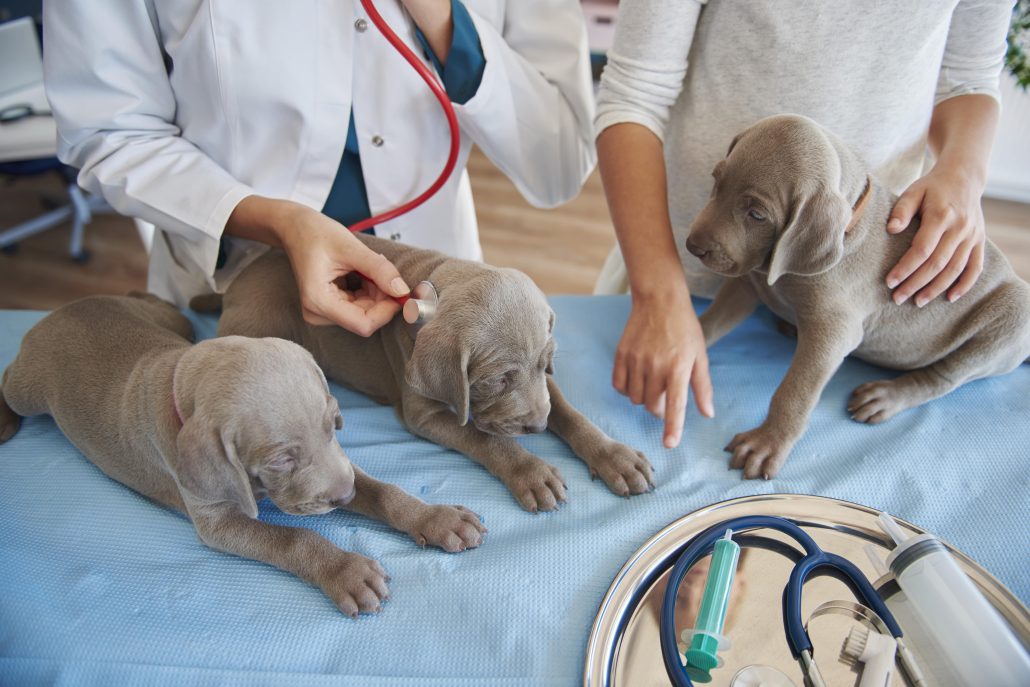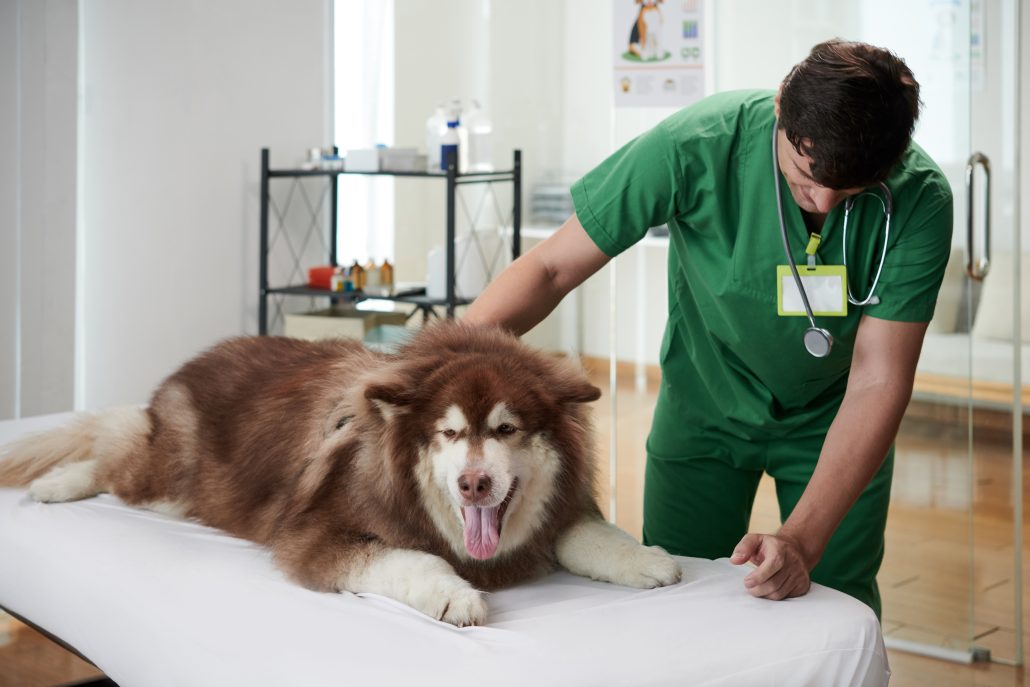
We’ve all seen our pups scoot their bottoms on the ground at one stage or another. This often means that there is something that is disturbing in that area. This might mean a mild itch or irritation to pain or a mire serious issue that leaves them uncomfortable.
One common condition that may cause the occasional scoot is worms. We know! The thought of worms in our dogs is highly unpleasant. But if left untreated can be dangerous. That’s why it is important to understand some of the signs and symptoms so you can reduce any discomfort (and keep your carpets clean from streaks!)
In this post, we discuss what you need to know about worms and your pups. From identifying the signs and symptoms to the different types of worms and how to treat and prevent them.
How Do I Know My Dog Has Worms?
Intestinal worms are parasites that live in your dog’s intestines and feed off their blood or other nutrients. These unwelcome pests can cause significant discomfort for your pooch and, in some cases, can even be fatal if not treated.
While each type of parasite affects dogs differently, there are several general warning signs that indicate a potential worm infestation. These include:
Segments of Worms in Feces and Vomit: One of the most apparent signs of worms is visible segments or full worms in your dog’s stool or vomit. These segments might look like grains of rice or spaghetti, depending on the type of worm.
Bloated Stomach and Abdominal Pain: A swollen or bloated stomach, and signs of abdominal discomfort, can indicate a heavy worm infestation. This is particularly noticeable in puppies.
Itchy, Irritable Bottom: If your dog is scooting its bottom across the ground or seems unusually itchy in that area, it might be trying to alleviate the discomfort caused by worms.
Weight Loss and Dehydration: Despite a normal or increased appetite, a dog with worms may still lose weight. Dehydration might also occur due to the parasites consuming the dog’s nutrients and causing digestive upset.
Diarrhea: Persistent or severe diarrhea can be a sign of worms. Sometimes, the diarrhea might contain blood.
Lethargy: Dogs with worms often show signs of lethargy and fatigue. These parasites drain the dog’s energy as they consume essential nutrients, leaving them weak and less active.
Unhealthy Coat Appearance: A dog’s coat can tell a lot about its health. Worm infestations often result in a dull, dry, or patchy coat.
No Symptoms: It’s important to note that some dogs might not show any symptoms, especially in the early stages of infestation. Regular vet check-ups and preventive measures are crucial to catching and treating worms before they cause serious health issues.
If you notice any of these signs, it’s essential to consult your veterinarian as soon as possible. Early detection and treatment can prevent more severe health problems and ensure your furry friend remains happy and healthy.
Read More: Staying Calm In A Pet Emergency

Different Types Of Worms You Pup May Encounter
When it comes to our canine companions, they may encounter several types of worms. Knowing the signs and symptoms associated with each type of worm can help you identify potential issues early on.
Roundworms
Roundworms are among the most common intestinal parasites found in dogs. They are long, white, and have a spaghetti-like appearance and live in the dog’s intestinal tract. Dogs typically acquire roundworms by ingesting worm eggs from contaminated environments or through their mother’s milk.
Tapeworms
Tapeworms are generally not known to cause significant signs of illness in dogs. The most common type affecting dogs in Australia is the flea tapeworm. Dogs contract tapeworms by ingesting infected fleas during grooming or by consuming small mammals like rodents. While tapeworms may not always cause noticeable symptoms, some dogs may exhibit discomfort such as scooting or itching around their bottom.
Hookworms
Hookworms are much shorter than roundworms and have sharp, biting mouths. They attach to the intestinal wall to feed on blood, which can lead to anemia in severe infestations. Dogs typically acquire hookworms through eating larvae from contaminated soil or through skin contact. This is most commonly how it is transmitted from mother to puppy during nursing.
Whipworms
Whipworms live in the large intestine where their thin, whip-like head burrows into the intestinal wall. They are known to cause severe illness and disease, particularly in older dogs. Symptoms of whipworm infestation include chronic diarrhea (sometimes bloody), weight loss, dehydration, and overall poor condition.

How Do Dogs Get Worms?
Dogs can contract worms in a number of ways, even if they are well cared for. These include:
- Ingesting Them: Dogs can ingest worm eggs or larvae from contaminated soil, water, or feces. This can happen during grooming, scavenging, or simply exploring their environment. Once ingested, the eggs or larvae hatch in the dog’s intestine, leading to an infestation.
- Through Their Skin: Certain types of worms have larvae that can penetrate a dog’s skin. This often occurs when dogs come into contact with contaminated soil or grass where worm larvae are present. The larvae migrate through the dog’s body, eventually reaching the intestine where they mature into adult worms.
- Eating: Dogs can inadvertently consume worms by eating infected prey animals, such as rodents or birds. These prey animals may harbour worm larvae or eggs, which can develop into adult worms once inside the dog’s digestive system.
- Fleas: Fleas play a quite a big role in the transmission of tapeworms. Dogs can become infected with tapeworms by ingesting fleas during grooming or through flea bites. Tapeworm larvae develop inside the flea, and when a dog ingests an infected flea, the larvae can mature into adult tapeworms in the dog’s intestine.
- From Their Mother: Puppies can get infected by certain types of worms from their mother before birth or through her milk during nursing. This transmission is crucial to consider, as it means even well-cared-for puppies born to an infected mother can still be at risk of infestations.
Diagnosing, Treating & Preventing Worms
While some worms can be visually identified in a dog’s stool or around their bottom, other types of intestinal worms, such as roundworms, hookworms, and whipworms, require a more thorough approach. Veterinarians will typically perform a microscopic examination of a stool sample to detect worm eggs or larvae. This helps identify the specific type of worm affecting your dog.
The good news is that once diagnosed, worm infestations in dogs can be effectively treated. Veterinary clinics and pet stores offer a variety of deworming tablets and medications that are easy to administer and highly effective.
However, while treatment is easy – prevention is always better than cure. This is important not only for your pet’s health but yours as well! Many worm infestations are zoonotic, which means that it can be passed between animals and humans. Regular deworming every three months helps ensure that any new infestations are promptly addressed before they can cause significant health issues in your household.
Additionally, other proactive steps like maintaining a clean environment, practicing flea control, and following a regular deworming schedule can significantly reduce the risk of worm infestations in dogs.

It's Never Too Late To Be Safe!
Understanding and managing worm infestations in dogs is essential for keeping your furry friend happy and healthy. By knowing the signs, how worms spread, and taking preventive steps, you can greatly reduce the risk of health issues caused by worms in your beloved pet.
If you suspect your dog has worms or you’re unsure about the right deworming schedule, The House Call Vet is here to help! Get in touch with us now to schedule an appointment. Our friendly team is ready to provide the care and advice your dog needs to stay happy and healthy. Let’s work together to keep your dog thriving!

